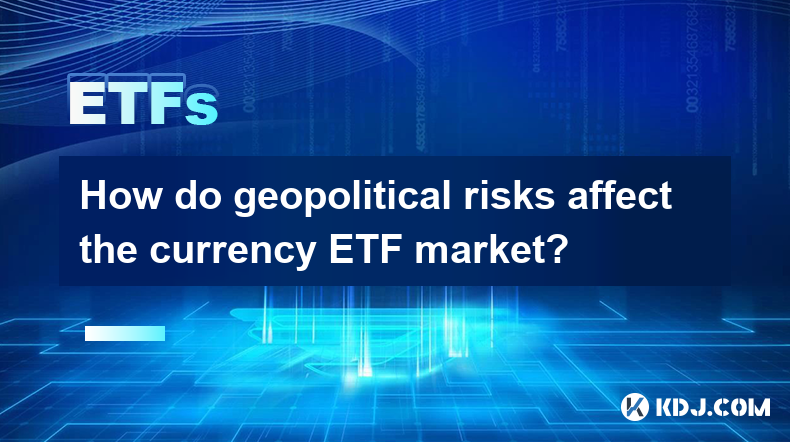-
 Bitcoin
Bitcoin $94,138.5081
-0.63% -
 Ethereum
Ethereum $1,804.2602
-0.20% -
 Tether USDt
Tether USDt $1.0003
-0.01% -
 XRP
XRP $2.1709
-2.73% -
 BNB
BNB $599.7613
-0.79% -
 Solana
Solana $147.4911
-3.04% -
 USDC
USDC $0.9999
0.00% -
 Dogecoin
Dogecoin $0.1797
-4.09% -
 Cardano
Cardano $0.6986
-4.21% -
 TRON
TRON $0.2512
1.84% -
 Sui
Sui $3.6246
1.33% -
 Chainlink
Chainlink $14.5398
-4.27% -
 Avalanche
Avalanche $22.2623
-1.61% -
 Stellar
Stellar $0.2844
-3.84% -
 UNUS SED LEO
UNUS SED LEO $9.0077
-0.47% -
 Toncoin
Toncoin $3.3035
1.67% -
 Shiba Inu
Shiba Inu $0.0...01378
-6.28% -
 Hedera
Hedera $0.1891
-3.94% -
 Bitcoin Cash
Bitcoin Cash $354.7756
-4.42% -
 Polkadot
Polkadot $4.1394
-4.18% -
 Litecoin
Litecoin $85.2740
-2.98% -
 Hyperliquid
Hyperliquid $17.5286
-4.10% -
 Dai
Dai $1.0000
0.00% -
 Bitget Token
Bitget Token $4.3943
-1.88% -
 Ethena USDe
Ethena USDe $0.9995
-0.01% -
 Pi
Pi $0.6360
-2.40% -
 Monero
Monero $229.6052
0.50% -
 Pepe
Pepe $0.0...09026
-5.79% -
 Uniswap
Uniswap $5.7262
-3.96% -
 Aptos
Aptos $5.4997
-2.22%
How do geopolitical risks affect the currency ETF market?
Sentence: Geopolitical uncertainties, including international conflicts and government policy changes, can significantly impact currency ETF performance by triggering currency fluctuations and influencing investor sentiment.
Jan 08, 2025 at 12:00 am

Key Points:
- Geopolitical risks can impact the currency ETF market through fluctuations in the underlying currencies and changes in investor sentiment.
- Investors should consider the potential impact of geopolitical events when making investment decisions involving currency ETFs.
- Currency ETF issuers play a significant role in managing risks and providing transparency to investors.
- Diversification across multiple currency ETFs can help mitigate risks and enhance returns.
- Monitoring geopolitical news and events is crucial for staying informed about potential market impacts.
How Geopolitical Risks Affect the Currency ETF Market
Geopolitical risks refer to political, economic, and social uncertainties that can affect the stability and value of currencies. These risks can arise from various factors, including:
- International conflicts or tensions
- Changes in government policies
- Economic sanctions
- Natural disasters
- Currency manipulation
When geopolitical risks occur, investors often seek safe-haven currencies, such as the US dollar or Japanese yen, which can lead to fluctuations in the value of other currencies. These fluctuations can impact the performance of currency ETFs, which are traded like stocks and track the performance of a specific currency or basket of currencies.
Impact on Underlying Currencies
Geopolitical risks can directly impact the value of underlying currencies by affecting economic growth, trade, and political stability. For instance, during periods of international conflict or uncertainty, investors may sell risky currencies and invest in safer assets, causing the value of those currencies to depreciate.
Changes in Investor Sentiment
Geopolitical risks can also influence investor sentiment, leading to shifts in investment behavior. Fear and uncertainty often drive investors to withdraw funds from emerging markets and invest in more stable markets, which can affect the demand and supply dynamics of currencies and the performance of currency ETFs.
Role of Currency ETF Issuers
Currency ETF issuers are responsible for managing the risks associated with these investments. They do this by:
- Diversifying holdings across multiple currencies to reduce concentration risk.
- Hedging against currency fluctuations to minimize losses.
- Providing transparent reporting of fund performance and risks.
Diversification
Investors can mitigate risks associated with geopolitical events by diversifying their currency ETF portfolio. By investing in a mix of currency ETFs that track different currencies, investors can reduce exposure to any single currency and potentially enhance returns.
Monitoring Geopolitical Events
Staying informed about geopolitical news and events is crucial for investors. By monitoring these developments, investors can anticipate potential market impacts and adjust their investment strategies accordingly.
FAQs
Q: Which geopolitical risks are most likely to affect currency ETFs?
A: Geopolitical events that have a significant impact on global economic growth, trade, and political stability, such as international conflicts, changes in government policies, and natural disasters, are most likely to affect currency ETFs.
Q: How can investors protect themselves from geopolitical risks in currency ETFs?
A: Investors can protect themselves from geopolitical risks by diversifying their currency ETF portfolio, monitoring geopolitical events, and considering investments in ETFs that provide hedging against currency fluctuations.
Q: Are currency ETFs a safe investment in times of geopolitical uncertainty?
A: The safety of currency ETFs in times of geopolitical uncertainty depends on the specific geopolitical risks involved and the underlying currencies included in the ETF. However, diversification and monitoring can help mitigate risks and enhance returns.
Q: How do currency ETF issuers manage geopolitical risks?
A: Currency ETF issuers manage geopolitical risks by diversifying holdings, hedging against currency fluctuations, and providing transparent reporting of fund performance and risks.
Q: What are some examples of geopolitical events that have affected currency ETFs?
A: Examples of geopolitical events that have affected currency ETFs include international conflicts such as the Russo-Ukrainian War and economic sanctions imposed on Russia, as well as natural disasters such as the COVID-19 pandemic.
Disclaimer:info@kdj.com
The information provided is not trading advice. kdj.com does not assume any responsibility for any investments made based on the information provided in this article. Cryptocurrencies are highly volatile and it is highly recommended that you invest with caution after thorough research!
If you believe that the content used on this website infringes your copyright, please contact us immediately (info@kdj.com) and we will delete it promptly.
- Mutuum Finance (MUTM) Presale Sells Out Attracting 9,100 Token Holders and Raising $7.2 Million
- 2025-04-27 15:10:13
- Bitcoin (BTC) Price Prediction: DanielM Trading Confirms Breakout Over $100k, Setting the Stage for New Resistance Level
- 2025-04-27 15:10:13
- Bitcoin price in Pakistan
- 2025-04-27 15:05:12
- Dogecoin (DOGE) and Litecoin (LTC) Mining Firm Z Squared Merges with Coeptis Therapeutics to Form New Publicly Traded Company
- 2025-04-27 15:05:12
- Seasoned Investors Are Forecasting Significant Gains from Certain Cryptocurrencies
- 2025-04-27 15:00:12
- Bitcoin (BTC) Market Jolts Back to Life After Easter Sunday, with Coinbase and Binance Seeing Huge Outflows
- 2025-04-27 15:00:12
Related knowledge

What role does SEC play in Bitcoin ETF approval?
Feb 25,2025 at 06:48am
Key Points:SEC's Role in Bitcoin ETF Approval ProcessHistorical Efforts to Establish a Bitcoin ETFSEC's Criteria for Bitcoin ETF ApprovalPotential Impact of a Bitcoin ETF on the Cryptocurrency MarketTimeline and Outlook for Bitcoin ETF ApprovalArticle:SEC Play in Bitcoin ETF ApprovalThe United States Securities and Exchange Commission (SEC) plays a crit...

Who is eligible to issue Bitcoin ETFs?
Feb 25,2025 at 11:13am
Key Points:Only regulated financial institutions with the necessary expertise and infrastructure are eligible to issue Bitcoin ETFs.The Securities and Exchange Commission (SEC) has not yet approved any spot Bitcoin ETFs, but has approved several futures-based ETFs.Applicants must meet stringent requirements, including having a strong track record and su...

What impact does Bitcoin ETF have on the market?
Feb 25,2025 at 11:37am
Key Points:Introduction to Bitcoin ETFs and their role in the cryptocurrency marketHistorical development and performance of Bitcoin ETFsPotential benefits of Bitcoin ETFs for investors and the marketRisks and limitations associated with Bitcoin ETFsRegulatory considerations and their impact on Bitcoin ETFsArticle:Introduction to Bitcoin ETFsBitcoin exc...

Which investors are Bitcoin ETFs suitable for?
Feb 27,2025 at 04:01pm
Key Points:Understanding Bitcoin ETFsBenefits of Bitcoin ETFsSuitability of Bitcoin ETFs for Different InvestorsAssessing Risk Tolerance and Investment GoalsConsidering Short-Term and Long-Term StrategiesExamining Tax ImplicationsSeeking Professional AdviceUnderstanding Bitcoin ETFsBitcoin exchange-traded funds (ETFs) are investment vehicles that track ...

What is the administrative expenses of Bitcoin ETFs?
Feb 26,2025 at 12:24am
Key Points:Administrative expenses are a crucial factor to consider when evaluating Bitcoin ETFs.These expenses can significantly impact the performance of the fund and ultimately the investor's returns.Understanding the various components of administrative expenses is essential for informed decision-making.Comparing administrative expenses across diffe...

What are the fees for purchasing Bitcoin ETFs?
Feb 27,2025 at 07:13pm
Key Points:Bitcoin exchange-traded funds (ETFs) are a cost-effective and regulated way to gain exposure to Bitcoin.Fees associated with Bitcoin ETF purchases vary depending on the platform, trading volume, and account type.It is essential to evaluate fee structures carefully to optimize investment returns.Fees Associated with Purchasing Bitcoin ETFs1. B...

What role does SEC play in Bitcoin ETF approval?
Feb 25,2025 at 06:48am
Key Points:SEC's Role in Bitcoin ETF Approval ProcessHistorical Efforts to Establish a Bitcoin ETFSEC's Criteria for Bitcoin ETF ApprovalPotential Impact of a Bitcoin ETF on the Cryptocurrency MarketTimeline and Outlook for Bitcoin ETF ApprovalArticle:SEC Play in Bitcoin ETF ApprovalThe United States Securities and Exchange Commission (SEC) plays a crit...

Who is eligible to issue Bitcoin ETFs?
Feb 25,2025 at 11:13am
Key Points:Only regulated financial institutions with the necessary expertise and infrastructure are eligible to issue Bitcoin ETFs.The Securities and Exchange Commission (SEC) has not yet approved any spot Bitcoin ETFs, but has approved several futures-based ETFs.Applicants must meet stringent requirements, including having a strong track record and su...

What impact does Bitcoin ETF have on the market?
Feb 25,2025 at 11:37am
Key Points:Introduction to Bitcoin ETFs and their role in the cryptocurrency marketHistorical development and performance of Bitcoin ETFsPotential benefits of Bitcoin ETFs for investors and the marketRisks and limitations associated with Bitcoin ETFsRegulatory considerations and their impact on Bitcoin ETFsArticle:Introduction to Bitcoin ETFsBitcoin exc...

Which investors are Bitcoin ETFs suitable for?
Feb 27,2025 at 04:01pm
Key Points:Understanding Bitcoin ETFsBenefits of Bitcoin ETFsSuitability of Bitcoin ETFs for Different InvestorsAssessing Risk Tolerance and Investment GoalsConsidering Short-Term and Long-Term StrategiesExamining Tax ImplicationsSeeking Professional AdviceUnderstanding Bitcoin ETFsBitcoin exchange-traded funds (ETFs) are investment vehicles that track ...

What is the administrative expenses of Bitcoin ETFs?
Feb 26,2025 at 12:24am
Key Points:Administrative expenses are a crucial factor to consider when evaluating Bitcoin ETFs.These expenses can significantly impact the performance of the fund and ultimately the investor's returns.Understanding the various components of administrative expenses is essential for informed decision-making.Comparing administrative expenses across diffe...

What are the fees for purchasing Bitcoin ETFs?
Feb 27,2025 at 07:13pm
Key Points:Bitcoin exchange-traded funds (ETFs) are a cost-effective and regulated way to gain exposure to Bitcoin.Fees associated with Bitcoin ETF purchases vary depending on the platform, trading volume, and account type.It is essential to evaluate fee structures carefully to optimize investment returns.Fees Associated with Purchasing Bitcoin ETFs1. B...
See all articles























































































